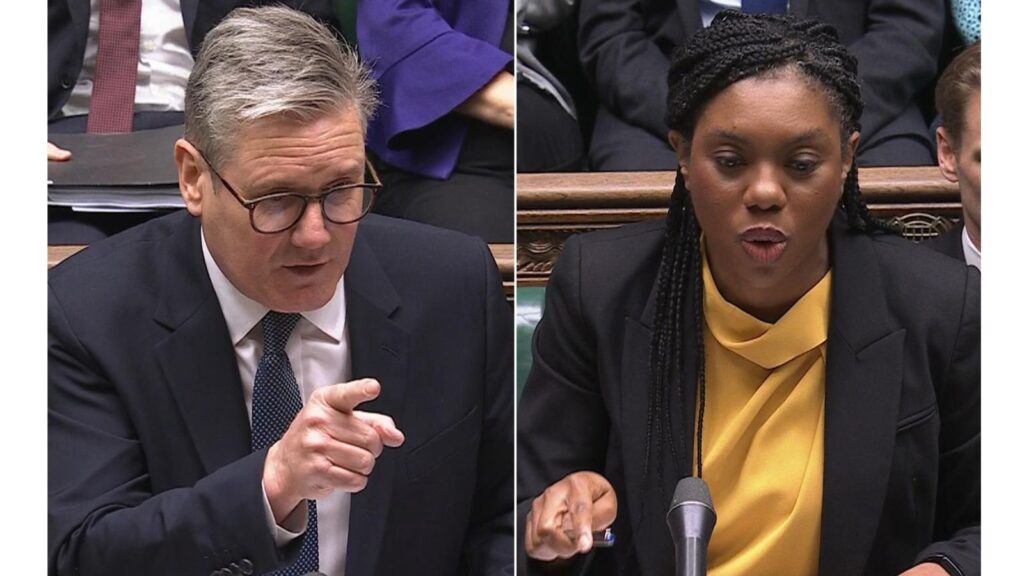
In a heated exchange during Prime Minister’s Questions (PMQs), Conservative leader Kemi Badenoch challenged Labour leader Sir Keir Starmer over the resignation of former Transport Secretary Louise Haigh. Badenoch accused Starmer of knowingly appointing a convicted individual to his shadow cabinet, raising questions about Labour’s judgment and accountability.

Haigh stepped down on Friday after “new information” surfaced regarding her 2014 conviction for misleading police. The incident stemmed from her falsely reporting a work mobile phone as stolen—a mistake she has described as an “honest error” with no intent for personal gain.
Starmer Defends Decision Amid Criticism
Pressed by Badenoch on what “new information” had emerged, Starmer declined to provide details, citing the confidentiality of private conversations. “Further information came to light. The transport secretary resigns,” Starmer tersely responded.
The Conservative leader accused Starmer of appointing a “convicted fraudster” to oversee critical public roles, calling it a “fraud on the British people.” Badenoch criticized Haigh’s involvement in approving significant public sector pay rises, including a 15% increase for train drivers. “The first thing she did was bung hundreds of millions of pounds in pay rises to her trade union friends,” Badenoch claimed.
Timeline of Events
Haigh’s conviction, which is now spent, dates back to a 2013 incident when she reported being mugged during a night out. She informed police of stolen items, including a work phone, only to later discover the device had not been taken.
When the phone was reactivated, it flagged police attention, leading to questioning. Acting on legal advice at the time, Haigh pleaded guilty to misleading the police and received a discharge, the lowest penalty available. Haigh expressed regret over her handling of the situation, stating, “This was a genuine mistake from which I did not make any gain.”
The Fallout
Haigh’s resignation has fueled debate over Labour’s vetting processes and Starmer’s leadership decisions. While Starmer defended Haigh’s departure as the right course of action after new details emerged, Badenoch accused him of failing to properly scrutinize his appointees.
“The truth is, he appointed someone convicted of fraud to the cabinet,” Badenoch told the Commons. “And it looks like he didn’t ask his transport secretary any questions either.”
A Labour source revealed that the information disclosed to Starmer during Haigh’s appointment was “inconsistent” with the details that emerged last week. Haigh has declined to confirm whether Starmer was aware of her conviction at the time of her appointment.
Public Sector Pay Controversy
Adding fuel to the fire, Badenoch highlighted the timing of Labour’s decisions to approve above-inflation pay rises for public sector workers, including teachers, NHS staff, and members of the armed forces. These decisions have drawn mixed reactions, with critics accusing Labour of using pay hikes to appease trade unions.
Political Implications
Haigh’s resignation marks the first major controversy for Starmer’s government since Labour’s election victory in July. With questions over transparency and judgment looming, the incident has provided Conservatives with ammunition to criticize Labour’s leadership.
As the debate over the implications of Haigh’s resignation continues, the broader issue of political accountability and transparency takes center stage. The public will undoubtedly be watching closely to see how Labour addresses the fallout and whether this controversy will have lasting political consequences.






